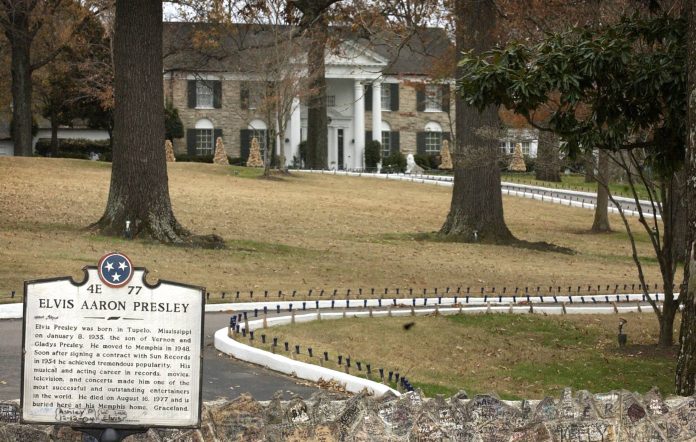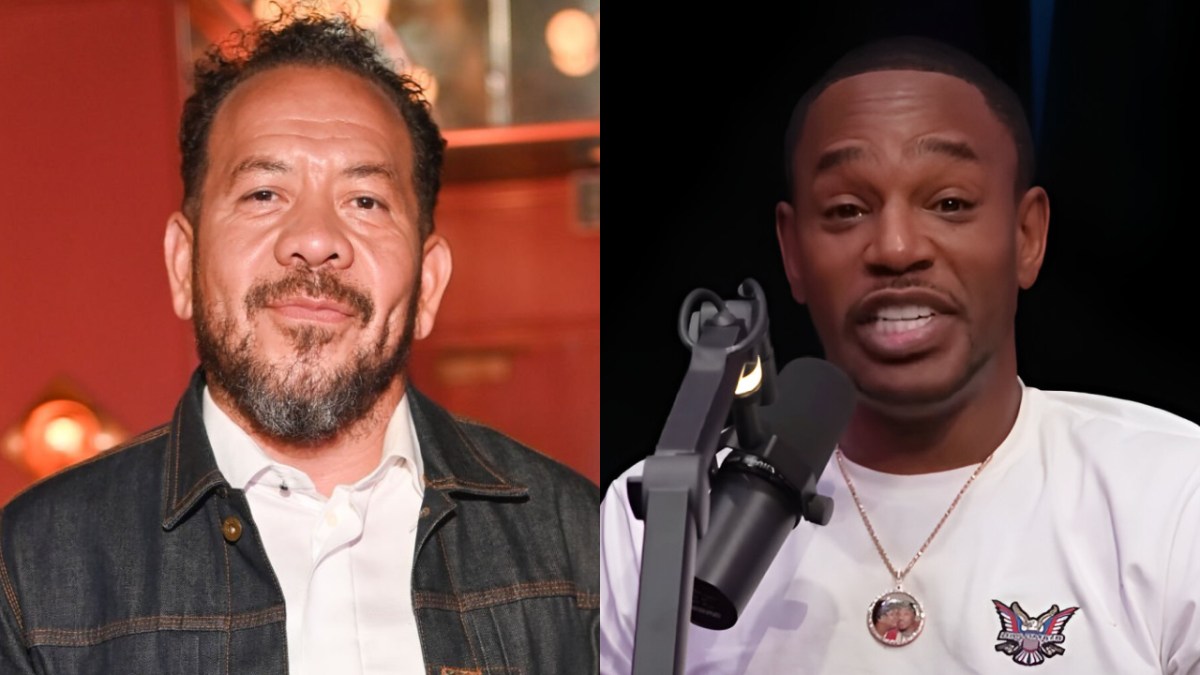A woman has been federally charged with mail fraud and aggravated identity theft following an alleged attempt to fraudulently sell Elvis Presley‘s Graceland earlier this year.
Lisa Jeanine Findley, a 53-year-old woman from Missouri, was arrested for allegedly orchestrating a scheme to conduct a fraudulent sale of Graceland, Presley’s mansion located in Memphis, Tennessee.
The fate of the iconic residence was thrown into question earlier this year, when a deed of trust emerged, which was allegedly signed by Presley’s daughter Lisa Marie in 2018 to secure a $3.8million (£2.9m) loan from Naussany Investments and Private Lending LLC in Missouri. The company claimed that Graceland was used as collateral in the loan, which was never paid back.
Yesterday (August 16) the US Justice Department alleged that Findley falsely claimed Lisa Marie, who died in January 2023, took out the loan from Naussany Investments — a bogus private lender — pledged Graceland as collateral for the loan and failed to repay the debt.
The DOJ alleged that Findley was seeking $2.85m (£2.2m) from Presley’s family to settle the alleged debt, and published a fraudulent foreclosure notice in a Memphis newspaper announcing that Graceland would be auctioned off to the highest bidder.
Prosecutors also claimed that Findley used a variety of aliases associated with a fictitious private lender called Naussany Investments & Private Lending LLC (Naussany Investments). This includes allegedly posing as a Nigerian scammer to take credit for the plan earlier this year.

If convicted, she could face up to 20 years in prison.
The Presley family has not publicly commented on the charges.
In May, it was reported that actor Riley Keough – who is also the granddaughter of the late music icon – was taking legal action to halt the court-approved sale of Graceland.
Keough – who is recognised for roles in Daisy Jones & the Six, Logan Lucky and Mad Max: Fury Road, and is also the daughter of Elvis’ only child, Lisa Marie – is the current owner of the iconic 13.8-acre estate in Memphis, Tennessee. She came into the position following the death of her mother last January.
After taking the matter to court, it was confirmed just days before the auction that Keough had been successful in her plea, and a Tennessee judge had blocked the planned sale of Graceland.
Later in May, a self-described scammer based in Nigeria came forward to take credit for the plan to send the iconic property to auction – saying that he was working as part of an identity theft ring.
The DOJ is now alleging that Findley was posing as the scammer.
The reports were shared by The New York Times, which reported that an individual based in Nigeria with a Naussany-associated email address contacted them.
In his email to the outlet, the individual said that he and his colleagues typically scam the vulnerable and the elderly, and turned their sights to the Memphis estate.
“We figure out how to steal. That’s what we do,” he told The Times. “I had fun figuring this one out and it didn’t succeed very well.
The outlet also reported that the email was written in Luganda, a language spoken in Uganda.
After looking into the company, The Independent shared that it was unable to verify specific details about Naussany Investments and Private Lending, namely because of a lack of public records and unreliable contact information.

It did, however, highlight expert information shared with the Associated Press, which revealed how scammers often target people’s assets after they’re dead.
“It’s very difficult for someone to say, ‘Well, no, I didn’t take out this loan, I didn’t sign these papers,’ when they’re dead,” Mark Sunderman, a University of Memphis real estate professor, told the outlet.
Similarly a Northeastern University criminology and criminal justice professor, Nikos Passas, added that the scam artists likely knew that the auction of Graceland was going to fall through.
“The chance of succeeding in what they were trying to do — that is, to get the property auctioned off and get the proceeds and then use the money — doesn’t seem to be the actual intent, unless they are incredibly stupid,” Dr Passas told AP. “So, the question is then, ‘What was the intent, and who was behind it?’”
The legendary singer first purchased the mansion back in 1957, and lived there until his death in 1977. In the years since, it has been a destination for fans who want to pay their respects to the musician.
Elvis is buried there, as are his parents, his daughter Lisa Marie, and her son Benjamin Keough.








